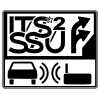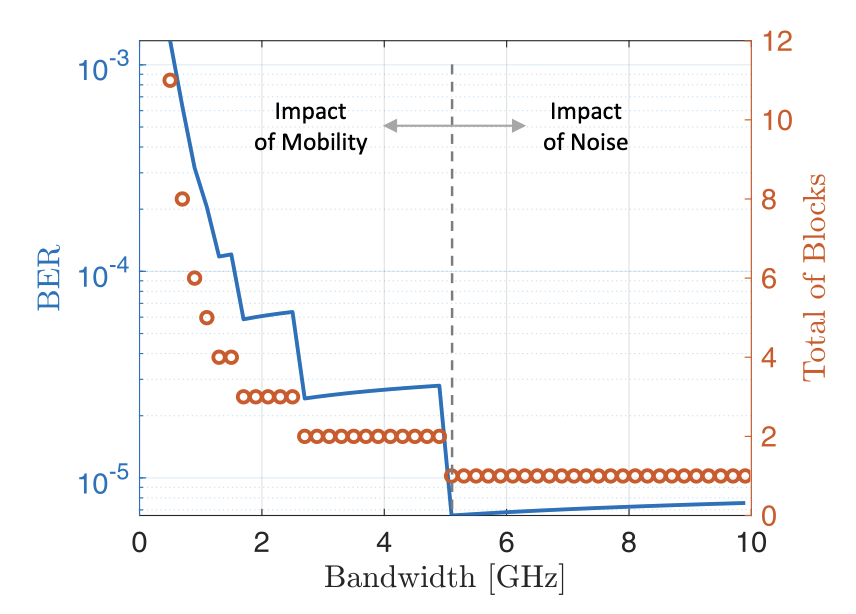Personal website of
Prof. Dr.-Ing. habil. Falko Dressler
ITS²SSU - Information Dissemination with SSU and RSU Support for improved Trafficc Performance and Safety in Urban Scenarios

Institutions
- Computer Networks and Communication Systems, University of Erlangen
- Electrical and Computer Engineering, Carnegie Mellon University
Team
- PD Dr. Falko Dressler (coordination)
- Prof. Dr. Ozan Tonguz (coordination)
- Christoph Sommer
Funding
- collaboration with Carnegie Mellon University
Project Time
- 01.01.2010 - 30.06.2010
Description
Intelligent Transportation Systems (ITS) are a promising solution to today's problem of ever increasing volumes of road traffic, optimizing ows of vehicles for safety and performance. Early approaches to information exchange between vehicles relied solely on the creation of an ad hoc network on the road, adapting protocols known from the related domain of Mobile Ad Hoc Networks (MANETs) and updating them for highly mobile networks. More recent approaches in the vehicular communication domain, which are typically termed Vehicle-to-Vehicle (V2V), Vehicle-to-Infrastructure (V2I), or Car-to-X communication, have extended this to incorporate the exchange of knowledge via broadcast or using peer-to-peer like systems. The performance of these ITS approaches in the context of traffic flow optimization hinges on the penetration rate: the less vehicles are equipped with the envisioned system, the less information can be gathered from or fed back to participants. In order to make the approaches more robust even at low penetration rates, researchers therefore consider the introduction of two main types of supporting network elements: First, simple Stationary Support Units (SSUs) to serve as stationary members of the network, storing and relaying information. Secondly, intelligent Road-Side Units (RSUs) that at the same time participate in the vehicle-facing wireless network and a separate (e.g., wire-bound) backbone, which can in turn be connected to one or more traffic information centers. Reliable data on quantifiable benefits of SSU and RSU introduction, however, is still lacking.
Recently, we have designed the Adaptive Trafficcc Beacon (ATB) protocol, which is adaptive in two dimensions: network conditions and infrastructural support. ATB uses a variable beacon period, which dynamically adapts the frequency of information exchange to a wide range of parameters such as vehicle density, vehicles' speed, radio communication reliability, and delay. These parameters are the basis for two key metrics to form indicators of channel quality and message priority. To enable exible use of infrastructure elements, ATB is able to rely on fully decentralized information exchange among participating vehicles. In addition to that, ATB may also automatically make use of available infrastructure. The buildup and exchange of heterogeneous knowledge bases and, hence, message prioritization, are envisioned as a core feature of ATB.
Based on this work, we are targeting the following research objectives:
- Efficient information dissemination - Based on ATB and IEEE 802.11p, we aim not only to transmit traffic information such as about accidents and congestions, but also short-lived data such as traffic light timings and information needed to estimate the current traffic flows in urban scenarios. Beside the frequently used metrics reduction of overall travel time and reduction of emission, we also consider the "smoothness" of the traffic flows as a key metric. The emission metrics are particularly appealing because they can effect the smoothness of traffic flows, taking into account the trade-off with regard to travel time and distance.
- Quantification of the impact of SSUs/RSUs - We further aim to quantify the optimization potential related to a targeted introduction of SSUs and RSUs. Beside assessing this fundamental issue for different approaches to information dissemination, we are particularly interested in its impact on beaconing solutions such as ATB. Thus, we are going to evaluate benefits of such SSU and RSU supported ITS for information dissemination in urban environments.
Selected Publications
 Christoph Sommer, Ozan K. Tonguz and Falko Dressler, "Traffic Information Systems: Efficient Message Dissemination via Adaptive Beaconing," IEEE Communications Magazine, vol. 49 (5), pp. 173–179, May 2011.
[DOI, BibTeX, PDF and Details...]
Christoph Sommer, Ozan K. Tonguz and Falko Dressler, "Traffic Information Systems: Efficient Message Dissemination via Adaptive Beaconing," IEEE Communications Magazine, vol. 49 (5), pp. 173–179, May 2011.
[DOI, BibTeX, PDF and Details...] Christoph Sommer, Ozan K. Tonguz and Falko Dressler, "Adaptive Beaconing for Delay-Sensitive and Congestion-Aware Traffic Information Systems," Proceedings of 2nd IEEE Vehicular Networking Conference (VNC 2010), Jersey City, NJ, December 2010, pp. 1–8.
[DOI, BibTeX, PDF and Details...]
Christoph Sommer, Ozan K. Tonguz and Falko Dressler, "Adaptive Beaconing for Delay-Sensitive and Congestion-Aware Traffic Information Systems," Proceedings of 2nd IEEE Vehicular Networking Conference (VNC 2010), Jersey City, NJ, December 2010, pp. 1–8.
[DOI, BibTeX, PDF and Details...] Christoph Sommer, Reinhard German and Falko Dressler, "Decentralized Traffic Information Systems and Adaptive Rerouting in Urban Scenarios," Proceedings of 29th IEEE Conference on Computer Communications (INFOCOM 2010), Demo Session, San Diego, CA, March 2010.
[BibTeX, PDF and Details...]
Christoph Sommer, Reinhard German and Falko Dressler, "Decentralized Traffic Information Systems and Adaptive Rerouting in Urban Scenarios," Proceedings of 29th IEEE Conference on Computer Communications (INFOCOM 2010), Demo Session, San Diego, CA, March 2010.
[BibTeX, PDF and Details...]- Christoph Sommer, Reinhard German and Falko Dressler, "Adaptive Beaconing for Delay-Sensitive and Congestion-Aware Traffic Information Systems," Department of Computer Science, Friedrich–Alexander University of Erlangen–Nuremberg (FAU), Technical Report, CS-2010-01, January 2010. [BibTeX, PDF and Details...]


